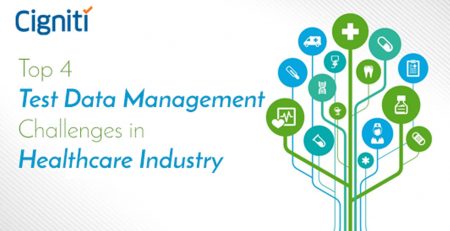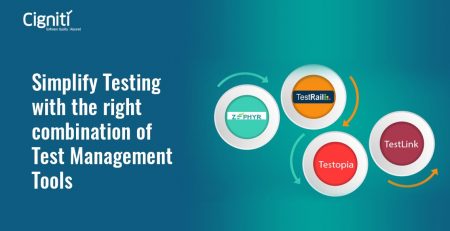Agile Test Data Management is Gaining Traction, Are You Ready?
Most businesses are adopting agile methodologies, and as a result, they are recognizing the importance of continuous testing. The change to a more flexible and dynamic development process needs quick access to relevant test data. Whether through functional testing, performance testing, or service virtualization, managing test data improves the quality of testing activities.
According to Forrester, “Test data management is in transition. As development processes speed up, inadequate quality feedback comes back to the testers and developers more quickly, often resulting in poor TDM. AD&D practices should adopt a TDM strategy for supporting Agile and DevOps that focuses on automating governance.”
IT companies spend 30% of their time and effort handling challenges with test data management, as well as expensive test environment CAPEX and maintenance costs owing to data quantity, which is comparable to production. While there is no established, consistent, and repeatable procedure for providing test data that is “fit for purpose” and provides enhanced test coverage, businesses that utilize live data for testing run the risk of violating compliance, regulatory, and consumer confidence.
The consequences of badly managed test data
Test engineers must create, update, and store input test data, as well as track and manage test results. For the same reason, test data management should be taken into account during any manual or automated testing. The following are some of the consequences of ignoring and mismanaging test data:
- Test inefficiency has resulted in higher costs and longer cycle times.
- Costs of data storage and upkeep are high.
- Added analytical and debugging work
- Added business risk as a result of insufficient or inaccurate test findings
- When using production data, there is a risk of a data security breach.
The cost of test data may continue to be a considerable part of the entire cost of testing. However, the higher the quality of your test data, the better your testing efforts will be.
Can you afford the cost of failure in a competitive market?
Why does Agile Test Data Management Matter?
Due to data sensitivity, complicated infrastructure, varied data sources, and, of course, restricted availability, managing test data quality is extremely difficult. Any business testing’s performance is determined by the ability and availability of high-quality, as-real-as-possible ‘test data.’ As a result, a solid Test Data Management system is critical to the success of your data strategy as well as your entire testing approach.
Clients frequently question the advantages of Agile Test Data Management operations in projects, which consume a substantial amount of time and effort.
Some of these are:
- Why is it necessary to have a separate team to supply test data for apps that are being tested?
- Will the number of FTEs be reduced as a result of this?
- What are the advantages of having a TDM team?
- What added value would the TDM team provide to IT?
Agile Test Data Management improves efficiency by at least 30% throughout an organization. Even moderately sized firms may save up to a million dollars each year, while major enterprises can save tens of millions of dollars. Eliminating data-related problems early in the process results in considerable cost savings in the project’s subsequent stages.
Why is Agile Test Data Management Crucial to Your Competitive Advantage?
Controlling or growing complexity and IT expenses depends on how you manage test data. The more complicated your test data becomes, the more talent you’ll need to manage it, and the more costly test data management becomes for your company.
Agile Test Data Management provides a wealth of on-demand, fit-for-purpose data that aids in the management of test data. An intelligent data sub-setting system results in a more efficient infrastructure, lower storage costs, and a lower total cost of ownership (TCO), as well as the implementation of a more effective risk mitigation system. Agile Test Data Management also serves as a consolidated data request and delivery method, resulting in faster data provisioning. The test cycle time is further lowered thanks to an automated test data procedure and cloned data subsets that result in faster test data setup.
According to Forrester, “In an Agile world, most testing, including unit testing, functional testing, and performance and integration testing, must be done within sprints, so test data has to be provisioned continuously to the teams and refreshed during each sprint. Test data will be essential for manual and functional automated testing as well as for user acceptance testing executed during sprints.”
Following a structured Agile Test Data Management strategy has a number of advantages:
- Providing demonstrable results, such as 30-40% quicker release times.
- Software errors are down 15%, and data protection rules and regulations are being followed.
- Customized test data for various types of testing – functional, integration, performance, security, and so on – ensuring that test data is not overstepped by different teams.
- The ability to trace test data back to test cases and business requirements aids in the understanding of test coverage and problem patterns.
- Cycle time has been reduced.
- Optimal sub-setting and gold copy creation (A gold copy is a reusable test data set that can be a full copy from production or a subset of engineered data).
- The data refresh cycle has been shortened.
- Due to the lower volume of data consumed, CPU usage is reduced.
- IT budgets for non-production settings have been cut.
The digital evolution and/or revolution, increased usage of data analytics, and demand from businesses to produce software faster are all having an influence on test data management. When developing and executing test data strategies, test data architects should keep track of these changes. The following are some essential elements and solution patterns to consider when developing a successful test data strategy:
- Agile and DevOps
- Big data obfuscation
- Creating Synthetic Test Data
- Cloud TDM / Test Data Warehouse
- Integration of a test management tool
- Sub-setting with Accelerators and Process Packs
- TDM in conjunction with Service Virtualization
- Automation will shorten the time it takes for a product to reach the market and increase efficiency.
Although all TDM tasks, including copying, transforming, masking, securing, cloning, and refreshing, may be developed internally using scripts, consider automating them to reduce human mistakes.
Creating a compelling business case and receiving approval to proceed with a TDM investment is only the first step toward improving your organization’s efficiency, quality, security, and cost savings.
Conclusion
At Cigniti, we’ve put in place solid test data management processes for complicated business applications. We have assisted enterprises in the development of solutions for centralized data governance, automated data administration, data analysis and identification, and high availability of test data, with over 200 professionals in the Data Governance practice. Our bespoke accelerators also help with synthetic test data creation, test data optimization, and test harnesses for a wide range of platforms. The Data Governance professionals, who include Certified DBAs, SQL & Data Modeling experts, have extensive expertise with IBM Optim, GridTools, DataMaker, QuerySurge, and other technologies.
Cigniti’s extensive data consulting expertise assists you in improving test effectiveness by using accurate test data, institutionalizing the test data management process, implementing test data creation and simulation, data masking, data quality management, data subset, data archiving, automating test data management systems, and protecting data sensitivity.
Need help? Talk to our experienced team of Agile Test Data Management experts and overcome your Test Data Management challenges.





Leave a Reply